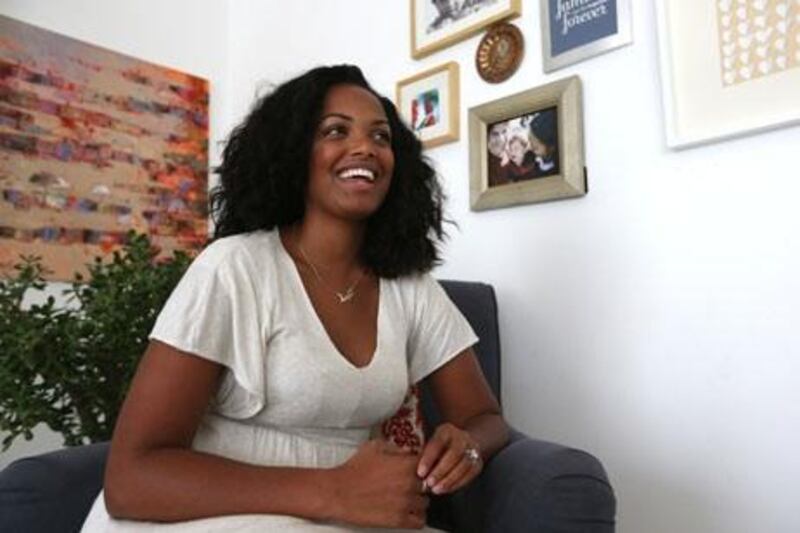ABU DHABI // Kera Thompson stocks up on her favourite foundation every time she travels back home to the United States.
Not only is this because the brand she prefers is cheaper in America, but also because she cannot find the colour here that suits her best.
Mrs Thompson, an American with European and African roots, says current trends make these products inaccessible to those who cannot afford high-end brands.
"I've noticed that a full spectrum of colours is often not available in drug-store brands as they are back in the US. Many of them stop halfway through the colour range," she said.
"There's no reason why a product should be out anywhere without providing all the colours, especially here where you have people from all backgrounds."
The 29-year-old interior designer and model said she stopped using popular, affordable brands after noticing that they weren't giving her the tone she wanted.
With Italian-German roots from her mother's side and Liberian roots from her father's side, Mrs Thompson has very dark skin.
"Many of these products have blue undertones which end up giving me an ashy complexion," she said. "So I started experimenting with higher-end brands when I was a teenager."
Now, Mrs Thompson uses Bobbi Brown - but the product does not come cheap. In the UAE, it costs Dh210 compared with US$42 (Dh154) without tax in the US.
The "fairer is better" perception also plays a role in consumer demand in this region, the mother-of-two said.
"When I first came here, I found it difficult to simply find a moisturiser that didn't change my skin colour. All of them were geared towards lightening or brightening the skin," she said. "I found that surprising after arriving from the US, where the tanner or more bronze you are, the better.
"I've seen beautiful Sudanese women, but their faces look grey because they're using foundation a few shades lighter than their complexion in an attempt to lighten their skin."
Having these colours available in the market could be one step towards changing the stigma associated with skin colour, Mrs Thompson added.
"It's not rocket science to know that people here need these products, but the trends in the market are based on outdated buying practice, and the perception that the fairer you are the more beautiful you are. This needs to change.
"Cosmetic companies have two responsibilities. First, they need to take a closer look at the colours they're producing. There are certain undertones that will not work with dark skin. Second, they also need to make sure product lines are available to the women who need them."






